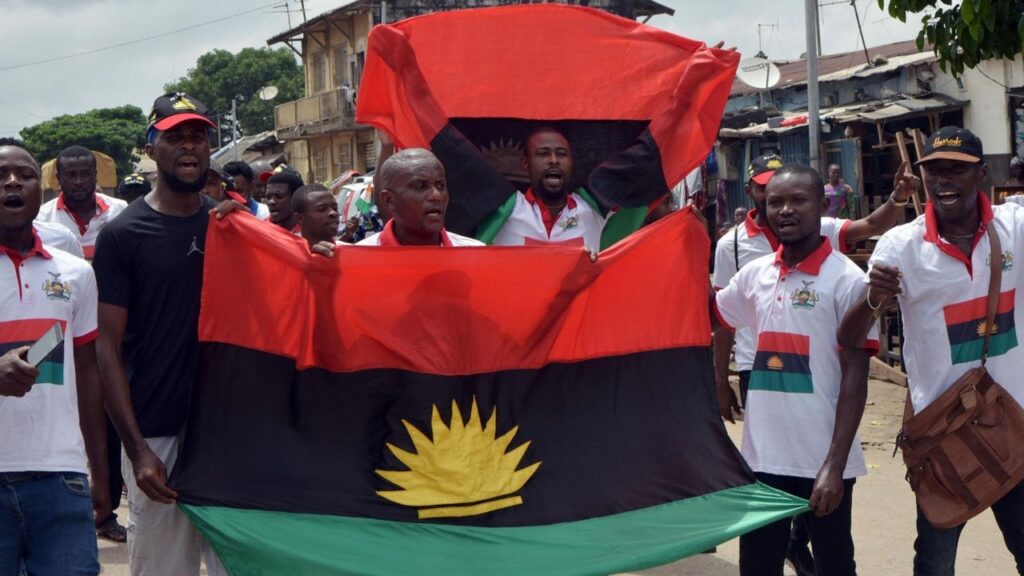
The Indigenous People of Biafra (IPOB) has announced a total lockdown across the South East and parts of the South South on May 30, 2025, in honour of Biafran heroes and heroines who died during the Nigerian Civil War and in the ongoing struggle for the actualization of Biafra.
In a statement by IPOB spokesperson, Emma Powerful, the group emphasized that the annual remembrance, known as Biafra Heroes Memorial Day, will feature solemn events including memorial lectures and tributes to the fallen both within and outside Nigeria.
The group disclosed that it had formally notified governors in the South East and South South geopolitical zones, as well as the West African Examinations Council (WAEC), urging the latter to adjust its May/June SSCE schedule in view of the planned sit-at-home.
“This is a day for sober reflection,” the statement read. “We urge every Biafran to observe the lockdown by staying indoors from 6 a.m. to 6 p.m. There will be no school, markets, religious gatherings, or public events. It’s a time to reflect on the sacrifices of our heroes who gave their lives in the quest for Biafra’s liberation.”
IPOB clarified that no protests or street demonstrations would be held within Nigeria on the day, citing concerns over potential violence from security forces. However, Biafrans in the diaspora are encouraged to organize peaceful demonstrations or town hall meetings to commemorate the day and call for the release of IPOB leader, Mazi Nnamdi Kanu, who remains in detention.
The statement added that essential and emergency service providers—including ambulance workers, medical personnel, security agencies, journalists, and fuel tanker drivers—are exempt from the lockdown order.
IPOB reiterated that May 30th is a symbolic public holiday for all who identify as Biafrans, stressing the importance of preserving the memories of leaders like Dim Chukwuemeka Odumegwu Ojukwu, Gen. Philip Efiong, Chief Dr. Frank Opigo, Commander Ikonso, and many others.
The group said the annual memorial also serves as a moment to reflect on the ongoing marginalization and injustices faced by the Igbo people within the Nigerian state.
Comments